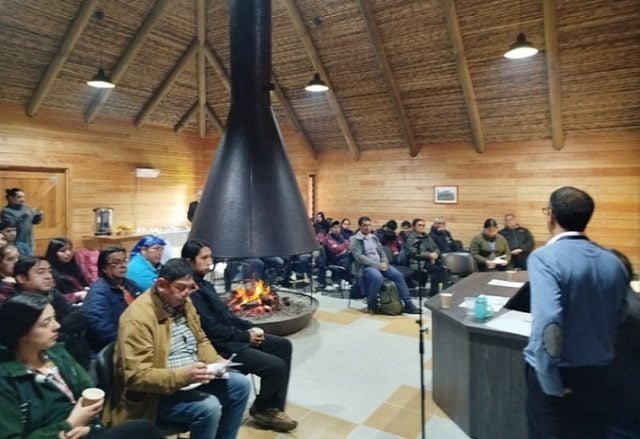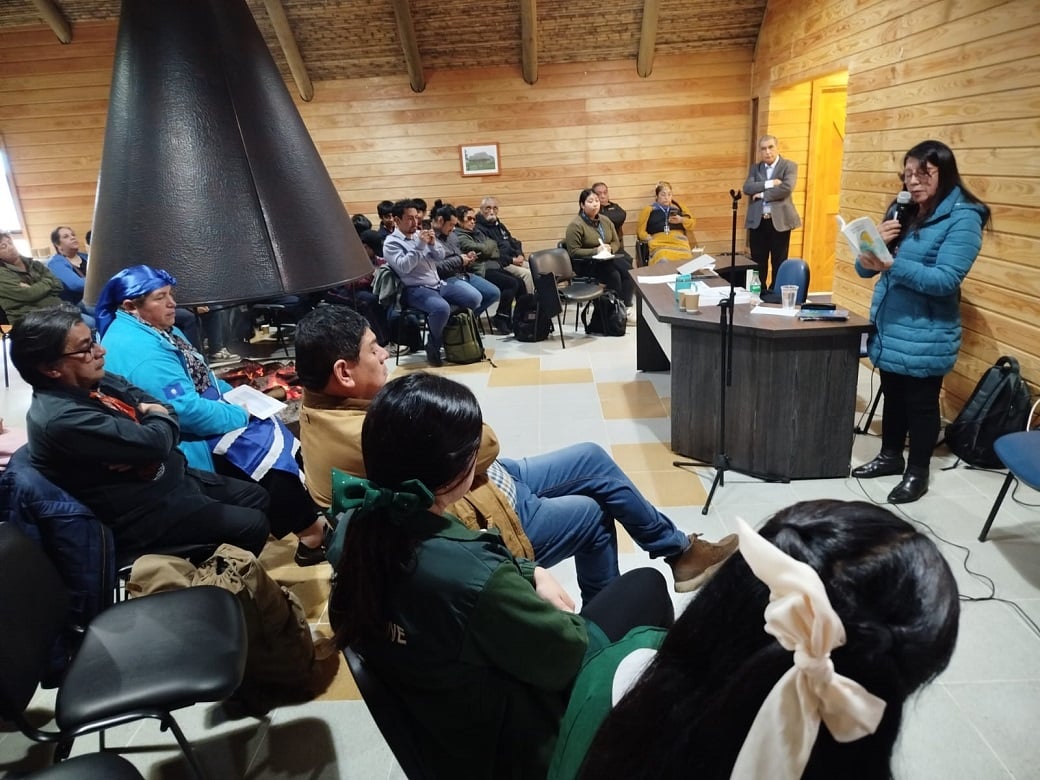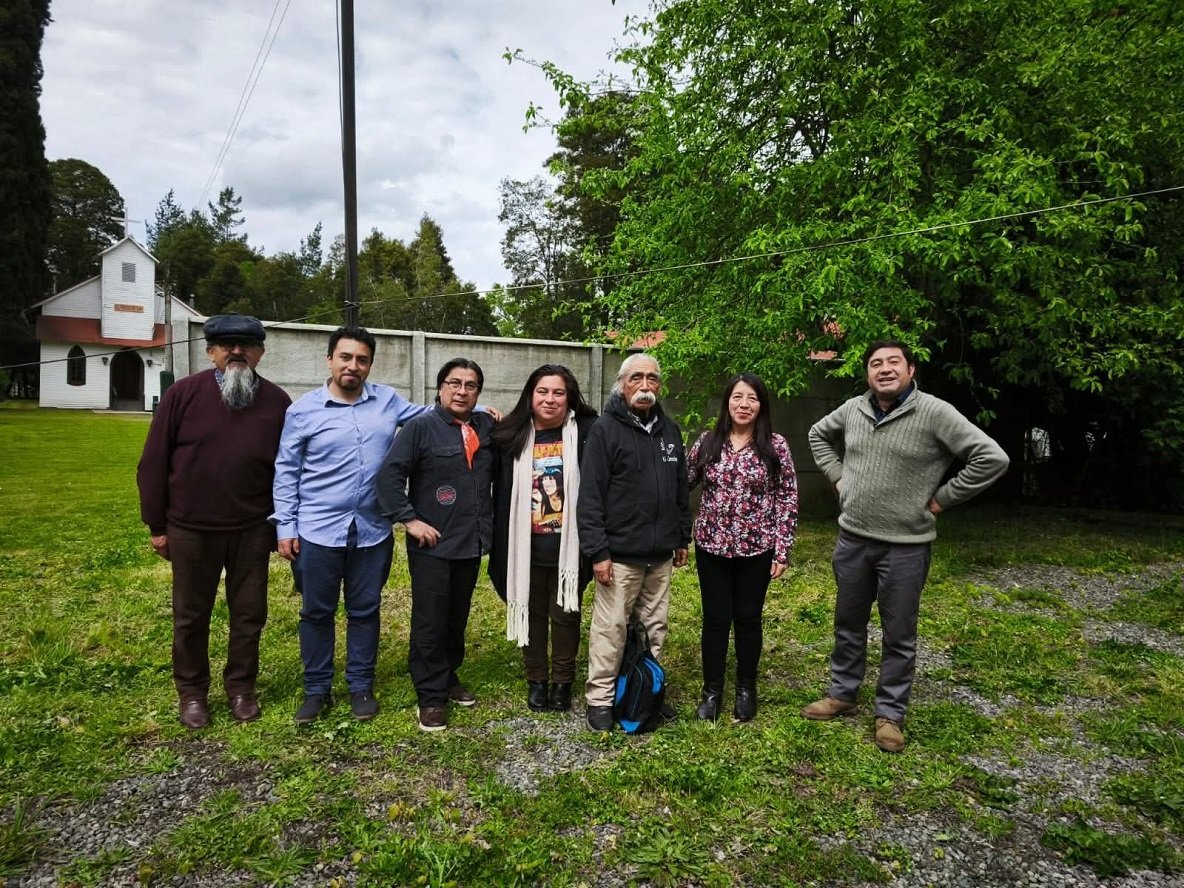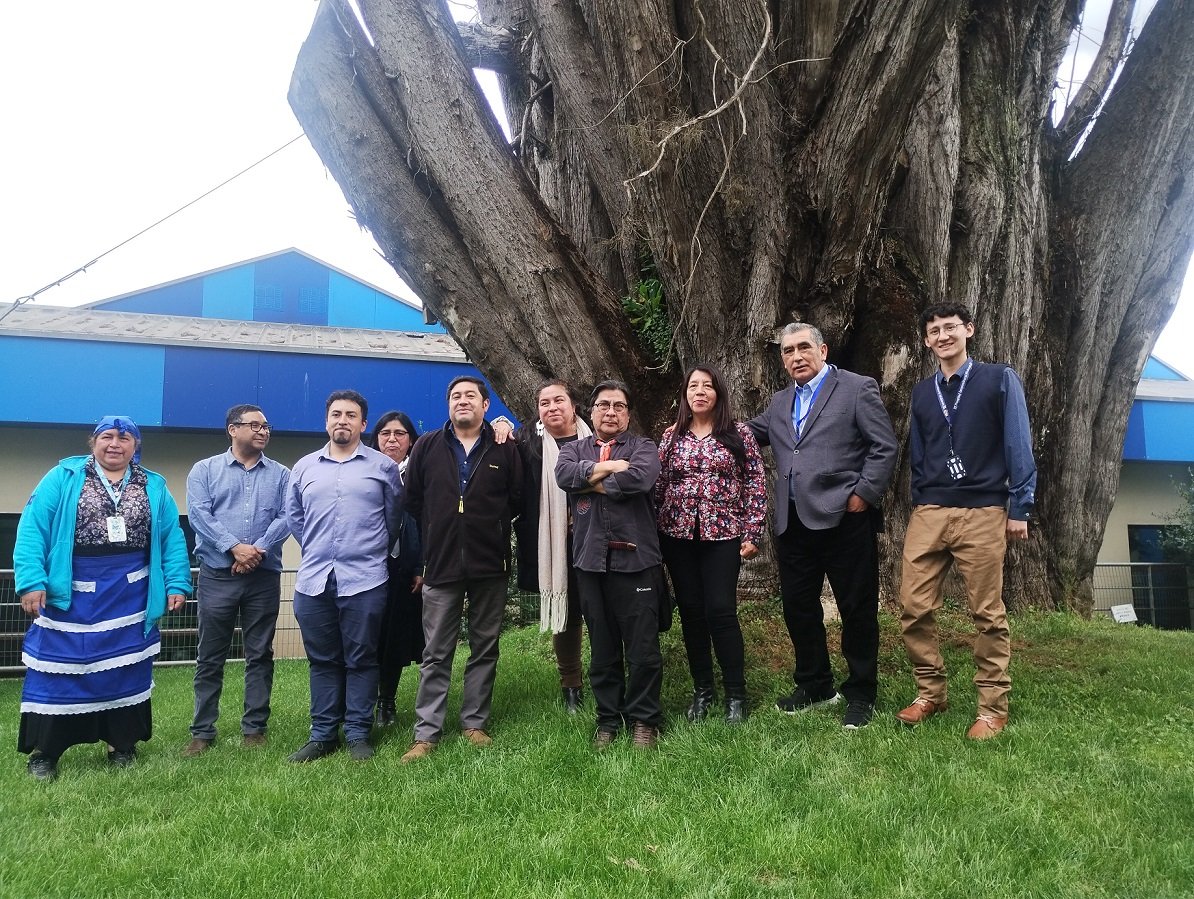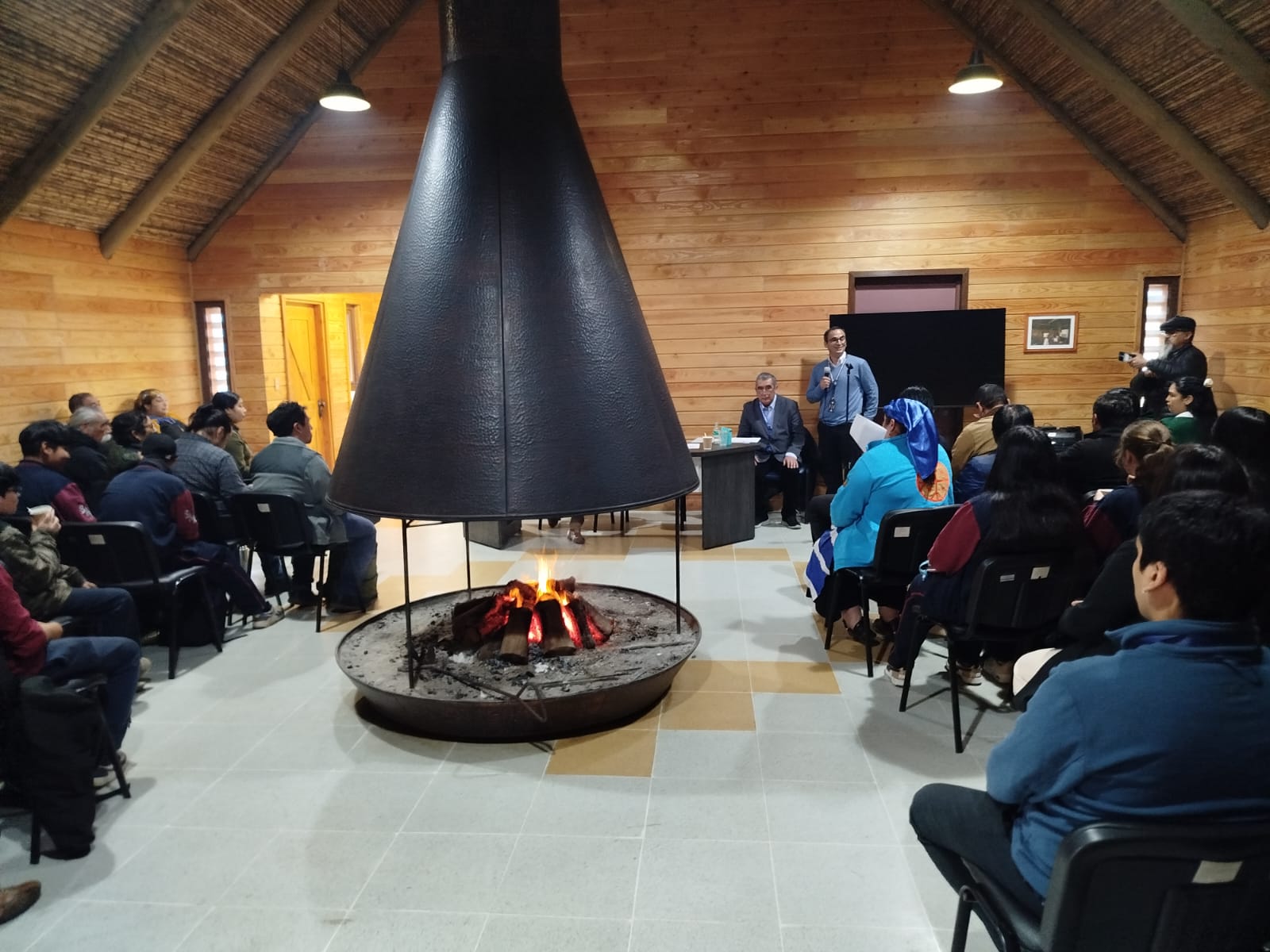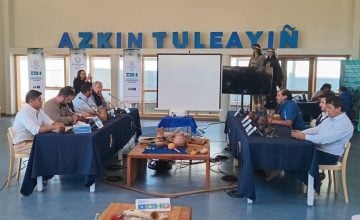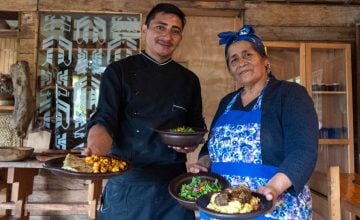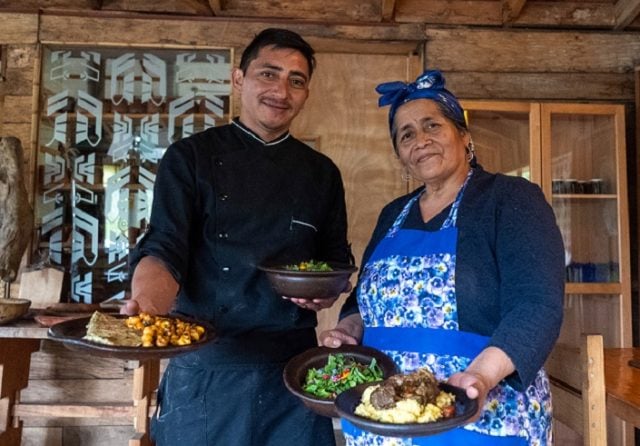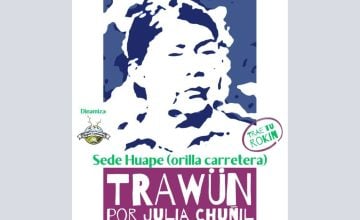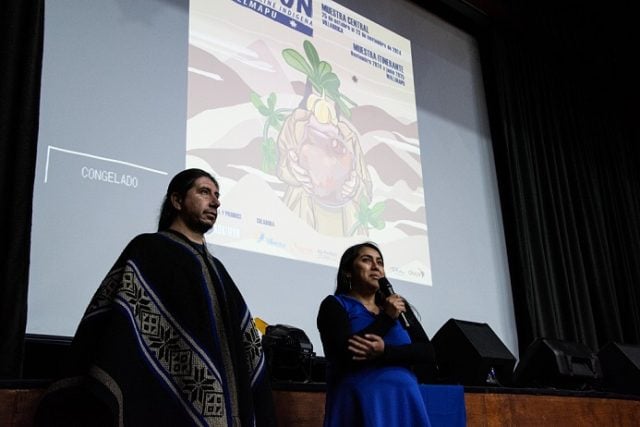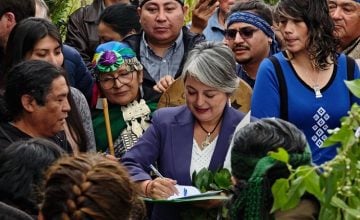Original article: Importante encuentro cultural mapuche se realizó en Hospital Makewe: reunió a destacados poetas del Wallmapu
Words That Heal: First Cultural Gathering on Health, Memory, and Identity of the Mapuche People Held at Makewe Intercultural Hospital
«Words that do not nourish, at least serve to illuminate»
Cristian Cayupán Mora during the Gathering
The Makewe Hospital (Padre Las Casas, Araucanía) hosted the First Mapuche Cultural Gathering, organized by the Mapuche Association for Health Makewe Pelale and the Intercultural Subdirectorate of Makewe Hospital, an event that brought together prominent poets and wisdom keepers from Wallmapu to discuss health, memory, and the identity of the Mapuche people. The gathering featured a literary contest aimed at promoting the voices of children and youth living in the territory. It became a space for intercultural dialogue and collective healing, where words, poetry, and medicine intertwined to strengthen the living and spiritual heritage of the communities.
Embracing a spirit of redefinition of October 12 as a date commemorating the resistance of indigenous peoples, the First Cultural Gathering around the memory and identity of the Mapuche people took place at Makewe Intercultural Hospital. Organized by the Mapuche Association for Health Makewe Pelale and the Intercultural Subdirectorate of Makewe Hospital, the event transformed into a space where living words and community presence celebrated the roots of a people that continues to write its history. With participation from renowned Mapuche poets and enthusiastic children and youth from local schools, the gathering not only honored the ancestral roots of Mapuche culture but also paved the way for community mental health and intergenerational dialogue.
From early on, the community gathered to participate in the event, which commenced with greetings from the organizing team, including the Secretary of the Mapuche Association, Jorge Blanco Millanao; the Administrative Deputy Director of the Hospital, Mario Meriño; the intercultural advisor of the Mapuche Association and head of SOM at the Hospital, Kelly Tranamil; members of the Hospital’s Mental Health Program, as well as other staff and association members, who highlighted the importance of being Mapuche, especially among new generations; they recalled the community nature of the Hospital as a health space that belongs to and serves the territory, and they agreed on the significance of valuing the connection between culture and health as an essential tool to promote mutual care spaces, aimed at validating the social and cultural characteristics of the territory.
Organizing team
Amid these words, sheltered by the warmth of the ruka, Kelly Tranamil, the intercultural advisor of the Mapuche Association for Health Makewe Pelale and head of SOM at Makewe Hospital, spoke about the significance of kume mogen, which articulates the worldview of the Mapuche people, emphasizing the importance of revitalizing the language in gatherings such as this one, stating, «If a Mapuche person translates literally what they say in mapuzungun, especially because in mapuzungun one puts their piwke (heart) when speaking, we can all create poetry together, because mapuzungun is beautiful.
Then, the voices of Mapuche poets resonated. With the sweetness and strength of their verses, they wove stories of identity and the persistence of ancestral memory, turning the event into a cultural celebration and collective healing. The üñümche Lorenzo Alliapan, a Mapuche bird-man, living treasure and master of teachers in biocultural knowledge, opened the day with the song of birds that stirs the spirit and reminds everyone of the deep connection between all beings that make up the cosmos.
Subsequently, moderated by poet Cristian Cayupán Mora, Mapuche writers Eliana Pulquillanca, Roxana Miranda Rupailaf, Bernardo Colipan, Bastián Chandia Millanao, and Juan Ñanculef shared their emotionally charged poems and reflections, inviting everyone to contemplate what it means to be Mapuche today, in a world where new forms of denial and colonial violence persist.
The Administrative Deputy Director of the Hospital, Mario Meriño, addressed the children and youth present in the auditorium, encouraging them to listen to and learn from the wisdom shared by the guests in that space in order to replicate it in their families, reminding them that «being Mapuche is something special» and that they should take pride in it. He also reiterated the community nature of the hospital, stating, «this hospital belongs to the community because it is administered by the community itself, represented by the Mapuche Association for Health Makewe Pelale.»
One of the most moving moments was the announcement of the literary contest «Wirintuken tañi rüf mapuche raizuam» directed at students from local schools, aimed at promoting and strengthening ancestral culture among new generations through the habits of speaking and writing.
During this moment, the outstanding tales and poems were voiced by those participating in the gathering, revealing the love for the territory, skill in creation, and artistic potential of children and youth in each of the categories promoted by the contest.
In the epew or narrative category, student Camila Huentelen took first place with her tale «The Golden Chilko»; Sebastián Paillali Fonseca secured second place with his tale «The Rooster,» Daniel Calcumil Núñez earned third place with the tale «The Clever Fox» and Belén Burgos Marinao received mention for her tale «A Makuñ».
In the mapuzungun poem category, aimed at revitalizing and strengthening the Mapuche language, student Yasmín Millañir Aramayo achieved first place with the poem «Kiñe Shumpal»; Lifko Huenchupan González took second with the poem «Mawizantü ñi ülo ülo»; Alün Millaman Piutrín earned third with the poem «Tañi kelü mamüll», and Pascale Ponce Burdiles received mention with the poem «Chi lafken».
Lastly, in the Spanish poem category, student Arturo Calcumil Núñez won first place with the poem «Wilki de Makewe»; Belén Burgos Marinao earned second place with the poem «My Dear Rose»; Benjamín Nahuelñir Calfuleo secured third place with the poem «My First Trarilongko» and Sebastian Paillali Fonseca received mention for his poem «The Ulmo».
The Gathering integrated a community mental health dimension, recognizing that art and culture are fundamental pillars for emotional care and also promoting cultural identity as a good of the communities that acknowledge their roots and strive for the preservation of their knowledge.
As the day concluded, the air was filled with a sense of unity and hope. The Mapuche Cultural Gathering not only highlighted the work of established and emerging Mapuche writers but also sowed seeds of dialogue and mutual recognition. It served as a reminder that through words and art, it is possible to build a future where memory and resistance continue to be beacons guiding the path back to the origin.
In this context, hospital staff member and member of the Mapuche Association, Kelly Tranamil, expressed, «We have come this far with tremendous effort, and it should make us proud and continue to raise the banner of saying I want to keep being Mapuche and live as a Mapuche, with the freedom to be so, without fear and advancing in our rights.»
The event made it clear that Mapuche culture is not only a legacy of the past but a living force that continues to resist and transform in the present through culture, worldview, and ancestral knowledge as an indigenous people. In this sense, one participating poet expressed, if we are here speaking from a Mapuche perspective and from other indigenous peoples, «it’s because we are standing tall and have managed to process the colonial trauma, and our children, and our children’s children will live in this territory that we are forcefully building… and when we return, our children and grandchildren will have the Wallmapu we dreamed of.»
School of Intercultural Communication «Nor Fën» / Ancestral Minga
